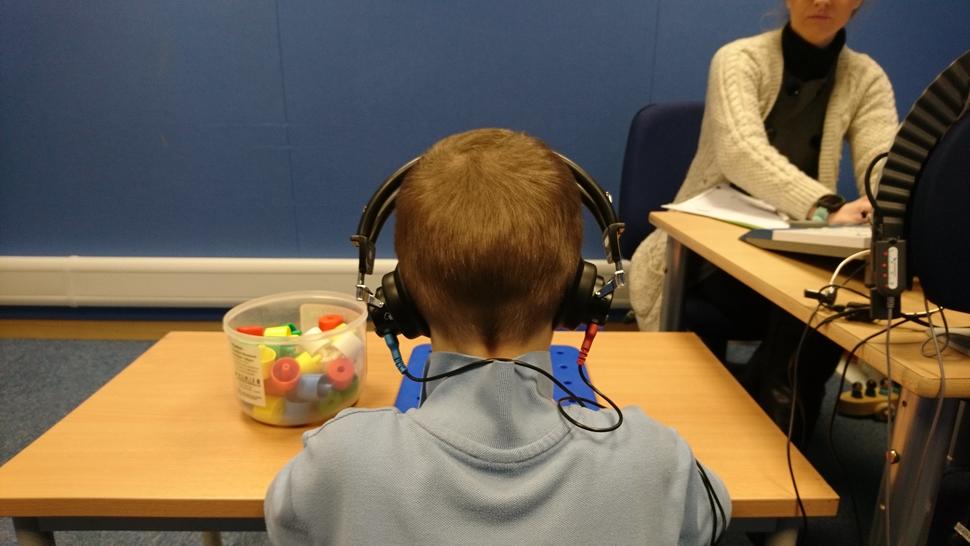Sodium Thiosulfate Approved to Reduce Chemo-Related Hearing Loss in Children with Cancer
, by Edward Winstead
The Food and Drug Administration (FDA) has approved sodium thiosulfate anhydrous (Pedmark) to reduce the risk of hearing loss among infants, children, and adolescents with cancer who receive the chemotherapy drug cisplatin.
Doctors use cisplatin to treat a variety of cancers in both children and adults. The drug can damage structures in the inner ear, leading to the loss of hearing in many patients.
“Cisplatin is an effective treatment for cancer, but it causes permanent hearing loss in up to 75% of children who receive it,” said Lisa L. Cunningham, Ph.D., scientific director of the National Institute on Deafness and Other Communication Disorders.
Sodium thiosulfate is the first FDA-approved treatment that can reduce the likelihood that a child will experience cisplatin-induced hearing loss as well as the severity of any damage to the inner ear that may occur.
“The approval is excellent news for children with cancer and their families,” said Dr. Cunningham. She noted that hearing loss in children can cause a range of problems, including delays in learning and in their social and emotional development.
FDA’s approval covers pediatric patients aged 1 month through 18 years who have localized tumors, meaning the cancer has not spread beyond the tissue or organ where it began.
Sodium thiosulfate prevents hearing loss and is safe
Cisplatin belongs to a group of platinum-based chemotherapy drugs. Research has suggested that hearing loss may result from damage caused by the accumulation of cisplatin in the inner ear.
Doctors and families have long viewed cisplatin-induced hearing loss as an unavoidable side effect of treatment. But with the new approval, there is an opportunity to try to prevent hearing loss and maximize the quality of life of young cancer survivors.
“This approval is enormously important and will benefit hundreds of patients annually,” said David Freyer, D.O., M.S., of Children’s Hospital Los Angeles, who led one of the two clinical trials that resulted in the FDA approval.
Both studies—one conducted by the Children’s Oncology Group (COG) in the United States and Canada and an international trial led by researchers in the United Kingdom—included patients aged 1 month to 18 years. Each study involved more than 100 patients.
In both trials, participants were randomly assigned to receive cisplatin-based chemotherapy alone or with sodium thiosulfate. Among those treated with sodium thiosulfate, the drug was administered as an intravenous infusion over 15 minutes following cisplatin infusions that could be up to 6 hours in duration.
According to the FDA, in the COG trial, fewer of those who received sodium thiosulfate than those who did not had hearing loss (44% versus 58%). In the UK-led trial, the rate of hearing loss was also lower in the group receiving sodium thiosulfate (39% versus 68%).
Among patients who received sodium thiosulfate, the most common side effects were vomiting, nausea, and minor alterations of sodium and other electrolyte levels in the blood.
Trying to prevent a “devastating problem” in children with cancer
Results from the COG trial and the UK-led trial of sodium thiosulfate were first published in 2016 and 2018, respectively. Based on the strength of those findings, some pediatric cancer hospitals began to use sodium thiosulfate for preventing cisplatin-induced hearing loss in some patients, according to Dr. Freyer.
The new approval, he noted, is expected to expand the use of the drug as the recognized standard of care, while also spurring additional research on the prevention of treatment-induced hearing loss in children.
For instance, additional studies are needed to clarify the role of sodium thiosulfate for children with metastatic cancer. “This research should be a high priority,” said Dr. Freyer.
In the meantime, Dr. Freyer pointed out that the current approval was the result of an “extraordinary collaboration” among laboratory scientists, clinical trial investigators, drug companies, regulatory experts, and, importantly, cancer survivors with hearing loss and their families.
“Everyone who had the privilege of playing a part in the process was motivated to help children by preventing this devastating problem,” he said.
